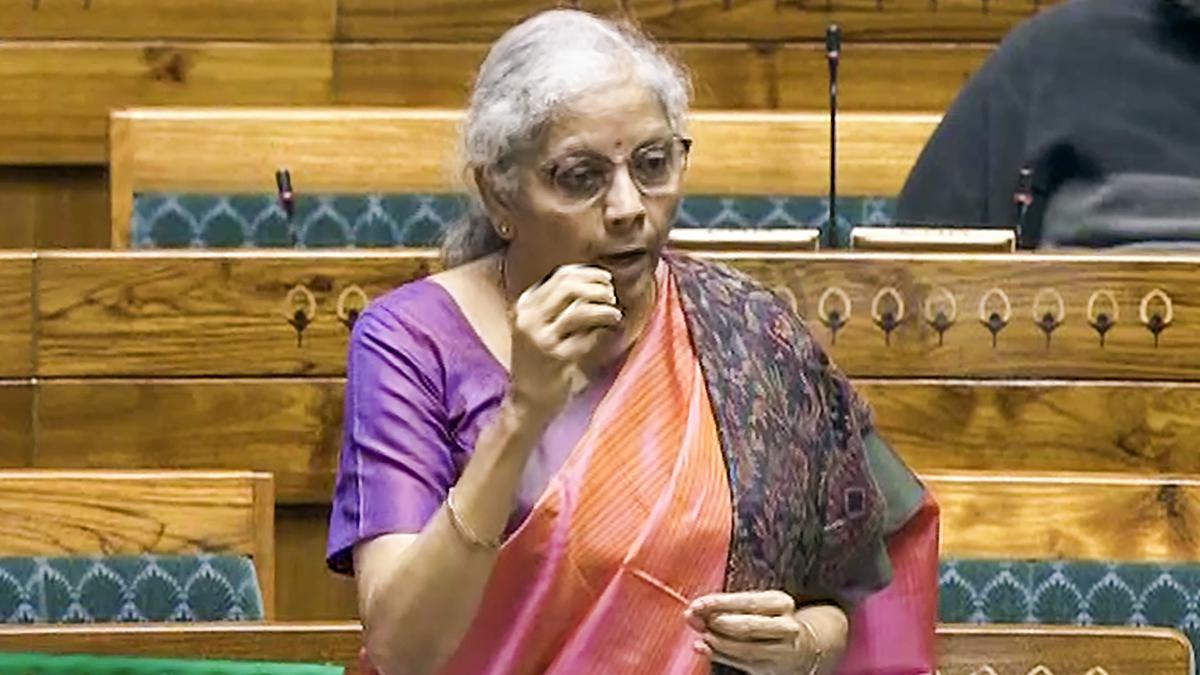Finance Minister Nirmala Sitharaman on Monday proposed an interim Budget of Rs 1.18 lakh crore for fiscal 2024-25 for the Union Territory of Jammu & Kashmir.
The interim Budget envisages a fiscal deficit of Rs 20,760 crore and a 7.5 per cent growth in gross state domestic product (GSDP). The allocation funds for revenue expenditure is (₹40,081 Cr) and capital expenditure is (₹19,283 Cr).
As per official handout, in a parliamentary session today, Union Finance Minister Nirmala Sitharaman unfolded the financial roadmap for Jammu and Kashmir, presenting the Revised Estimates for 2023-24 and the highly anticipated Interim Budget 2024-25.
The Appropriation Bills on Supplementary Demands for 2023-24 and Vote on Account for 2024-25 are scheduled for deliberation by the Lok Sabha and Rajya Sabha from February 7th to 9th.
The Finance Department of the Union Territory meticulously crafted the Supplementary Budget for the ongoing fiscal year and the Interim Budget for the next, conducting a comprehensive assessment of revenue receipts.
The assessment encompassed revenue receipts from diverse streams, including GST, motor spirit tax, excise, stamp duty, and non-tax revenue contributors like electricity and water supply, mining royalty, timber sales, and industrial land rent, aggregating an estimated Rs. 20,867 crore.
Under the leadership of Lieutenant Governor Manoj Sinha and Chief Secretary Atal Dulloo, the UT’s persistent efforts garnered Central Government’s nod to provide substantial financial assistance – Rs. 41,751.44 Cr in the current fiscal and Rs. 37,277.74 Cr in the upcoming fiscal year. These figures, seamlessly integrated into the Revised Estimates of 2023-24 and the Budget Estimates of 2024-25, comprise normal assistance and equity contributions for pivotal hydropower projects.
The Revised Estimates for 2023-24 depict a commendable reduction from the initially budgeted estimates, a testament to the UT government’s adept streamlining of expenditures. The Supplementary demands for 2023-24, totaling Rs. 8,712.90 Cr, primarily cater to key departments such as Finance, Power Development, Hospitality and Protocol, and Cooperatives.
Looking ahead to the fiscal year 2024-25, the interim budget allocates resources for ongoing initiatives, including infrastructure development, sustainable agriculture, new industrial estates, PRI-level works, employment generation, tourism development, and social inclusion. Rigorous consultations with departments and stakeholders ensured realistic budgetary allocations.
The budgetary exercise maintains a focus on advancing the greater collective good within realistically realizable resources. The proposed budget estimate for the next fiscal year, 2024-25, is approximately ₹1,18,728 Cr, with the UT Government suggesting a Vote on Account for ₹59,364 Cr.
The key allocations within the Interim Budget include a Rs 2959 Cr provision for tap-water connectivity in rural areas under the Jal Jeevan Mission, a Rs 934 Cr boost for transforming agriculture through the Holistic Agriculture Development Programme, and Rs 1907 Cr for rejuvenating school education infrastructure under the Samagra.
Key Highlights :
₹2959 Cr for tap-water connectivity in rural areas under Jal Jeevan Mission, with ₹532 Cr as UT Share.
₹1093 Cr for rural housing under PMAwasYojana-Grameen scheme.
₹934 Cr for transforming agriculture through HADP
₹660 Cr for J&K’s equity in hydroelectric projects.
₹1907 Cr for school education infrastructure under Samagra Shiksha Abhiyan.
₹ 1000 Cr for comprehensive social security coverage for old aged, widow and disabled pensions by saturation approach
₹450 Cr for new Colleges & Universities
₹1683 Cr for PMGSY roads, ₹300 Cr for CRF roads, ₹1000 Cr NABARD scheme.
₹370 Cr for Swachh Bharat Abhiyan (Urban) & ₹390 Cr for Flood Management
₹1000 Cr for comprehensive social security coverage.
₹430 Cr for women empowerment (Ladli Beti, Marriage Assistance).
₹ 400 Cr for construction of Transit accommodations for KP employees.
₹91 Cr for new tourism destinations, circuits, and heritage preservation.
₹140 Cr for sports infrastructure.
₹100 Cr for sewerage projects, ₹70 Cr for townships, and ₹50 Cr for Dal development.
₹500 Cr for bank capitalization, ₹40 Cr for tourism and industrial promotion.
₹30 Cr for high-density plantation, ₹5 Cr for transport sector upgrade.
₹272 Cr for DDC/BDC grants for local governance improvement.
₹59 Cr for police housing, ₹45 Cr for bunkers, CCTVs in PS’s
₹ 450 Cr for GST re-imbursement to ensure timely reimbursement of the claims.
₹ 174 Crfor development of model schools under PM-Shri scheme.
₹ 150 Cr for developing rooftop solar and other avenues of new and renewable energy.
₹ 100 Cr for conclusion of World Bank funded Jhelum Tawi Flood Recovery Project.

